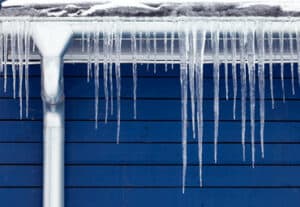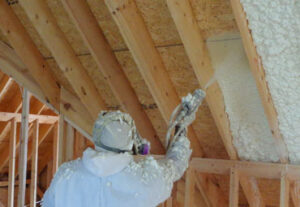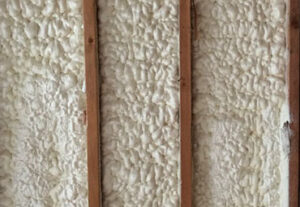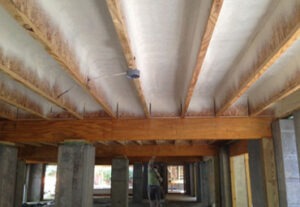Spray Foam Insulation
We are Foam Insulation Installers in NebraskaThere is really no other home insulating material that can seal your home from air and moisture intrusion, save on costly utility bills, strengthen your home, and help to protect your family’s health from dangerous mold, airborne pollutants, and allergens than Spray Foam Insulation.
Spray Foam Insulation Benefits
Nelson’s Spray Foam Solutions, LLC
Foam Insulation Installers in Southeast Nebraska, Nebraska

Types of Spray Foam
Learn all about closed-cell and open-cell foam and the benefits and uses for each.
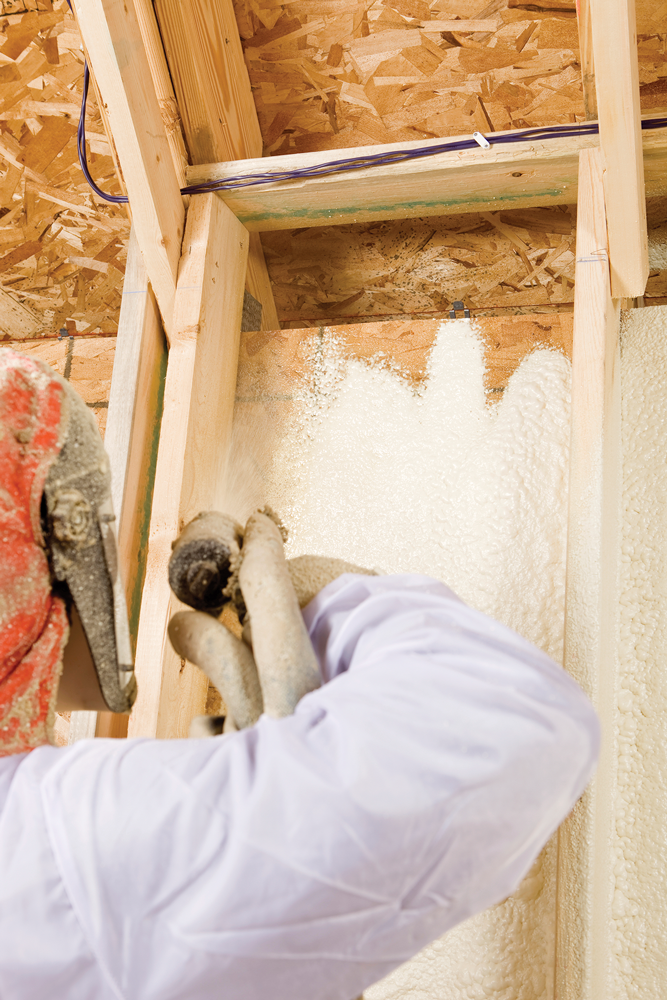
Spray Foam Insulation Benefits
For decades, fiberglass insulation was the material of choice to insulate homes. Blown fiberglass was often used for the attic and fiberglass batts were used for wall cavities, ceilings, and pretty much everything else. But fiberglass only has an R-Value of 3 per inch, wont stop air movement and does not work when wet. Enter spray foam insulation, the super insulation with the highest R-Value of 7 per inch and all these additional benefits:
• Stops air / moisture leakage
• Reduces drafts
• Save on energy costs
• Reduce monthly utility bills
• Keeps dust and pollen out
• Strengthens structures (CC)
• Reduces Noise Infiltration (OC)
High R-Value
Sprayed polyurethane foam has an aged R-value of approximately 6.0 per 1 inch thickness (depending on the particular formulation and application, higher values have been achieved), enabling it to provide more thermal resistance with less material than any other type of commercial insulation material. SPF systems are frequently used to insulate and protect a wide variety of residential, commercial, and industrial buildings.
Monthly energy and utility savings of 30% or greater have been reported by consumers.
Prevents Air, Moisture and Gas Infiltration
Studies have shown that as much as 40% of a building’s total energy loss is due to air infiltration. Traditional fiberglass insulation is only stapled, or placed into the wall cavities and does not seal the stud and wall cavities from end to end, or top to bottom. Air infiltration can pass through these NEps, making it far less efficient than SPF. SPF not only adheres to, but forms to the walls and floors to create a tight seal and insulating barrier that stops this air leakage. SPF also boasts the highest R-value per inch than any other commercial material, (upwards of R-7.0, compared with Fiberglass at R-3.5) making your home more comfortable and less expensive to heat in the winter, and cool in the summer.
Since SPF acts as an air barrier, it also helps to reduce moisture infiltration, which is a source of dangerous mold and mildew growth in the home, and can cause severe health problems to its occupants. So save your family and save money at the same time with SPF home insulation systems. Moisture infiltration can also cause structural damage to your home or building.

